Only 150 of 3500 U.S. colleges worth the investment, says former Secretary of Education
It’s no secret that college is a huge investment in your future, and costs are rising at most colleges and universities.
With the price so high and student loan debt increasing, it’s never been more important to be careful how you spend your college dollars. But which colleges pay off?
Are 96% of U.S. colleges a waste of money?
According to Former Secretary of Education William Bennett, author of Is College Worth It?, only 150 U.S. colleges offer a positive return on your college investment.
The problem? There are 3500 colleges in the country, which means that according to Bennett’s analysis, 96% of colleges aren’t worth the investment.
But thousands of students attend colleges outside of Bennett’s top 150 each year. Does that mean they’re all doomed?
Bennett’s flawed methodology
Bennett assessed the 30 year return on investment for the 3500 colleges and universities in the country and found that returns were positive for only 150 institutions.
The top 10 schools ranked by Bennett as having the best return on investment are below, which he based off of this list.
- Harvey Mudd College
- California Institute of Technology
- Massachusetts Institute of Technology (MIT)
- Stanford University
- Princeton University
- Harvard University
- Dartmouth College
- Duke University
- University of Pennsylvania
- University of Notre Dame
The latest figures, however, include several schools you wouldn’t expect to find on the list, including SUNY-Maritime, Colorado School of Mines, and the Massachusetts Maritime Academy.
Financial aid affects college ROI
A large problem with this methodology is that it assumes students are paying sticker price to attend the college. But this is simply not the case for the majority of students.
According to the National Center for Education Statistics, 71% percent of all undergraduate students received some type of financial aid in the 2011-12 academic year, up from 66% four years earlier (2007-08).
And while “financial aid” includes student loans, the percentage of students receiving “free money,” grants, rose from 51% to 59%. These grants averaged $6,200, up from $4,800 four years earlier.
Many private colleges offer significant financial aid
A great financial aid and scholarship package can turn a college from a negative-ROI school to an extremely positive-ROI one, based on average salaries.
Many of the “negative ROI” colleges on the list with yearly sticker prices of $40,000 or more offer full- or partial-tuition scholarships, turning them into great bargains.
And since it’s been proven that graduates of elite colleges don’t necessary earn more, students should be more concerned with minimizing student loan debt than graduating with a fancy name on their degree.
College is a smart investment if you choose wisely
As we’ve discussed, simply having a college degree–regardless of where it’s from–pays off greatly over the course of one’s life. It improves one’s likelihood of job satisfaction and employment, results in higher pay, and reduces your chances of living in poverty.
And since field of study, individual drive, location, and several other factors play a huge role in one’s salary, even graduates of colleges with low average salaries can still earn enough to make their college ROI positive.
This doesn’t mean you should be careless and spend hundreds of thousands of dollars on a degree that won’t pay off. But as long as you’re smart about where you apply, maximize your financial aid package, and put in the effort, your degree will pay off financially, professionally and personally.
Working with a financial aid counselor can be a great help to families looking for a positive return on their college investment. If you’re interested in learning how we can help you make college affordable, give us a call at 1-888-234-3907 or contact us for a free consultation.
affording college, app, applying to college, college ROI, college value, economy, financial aid, financial aid counseling, parents, paying for college, return on investment
